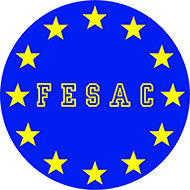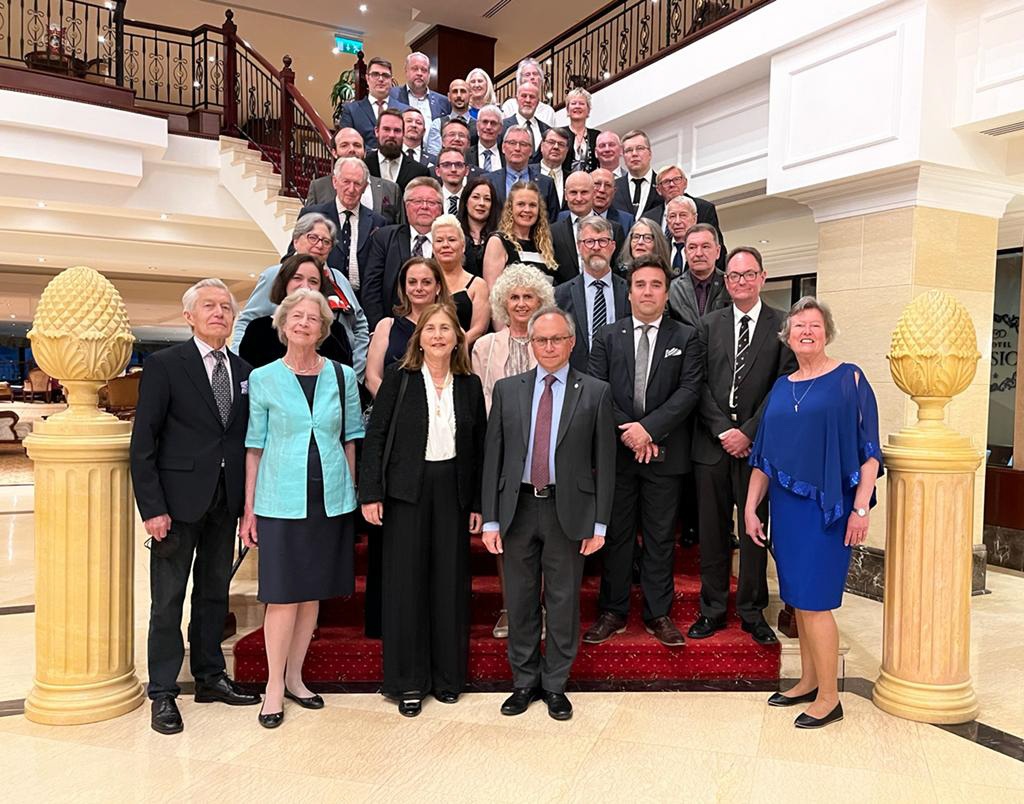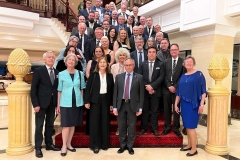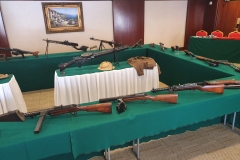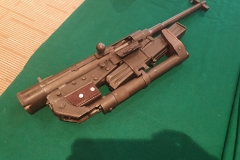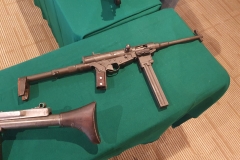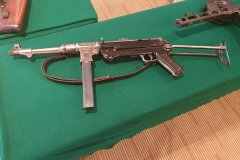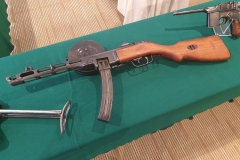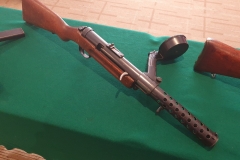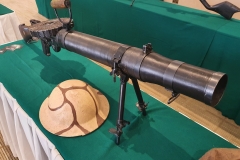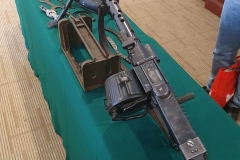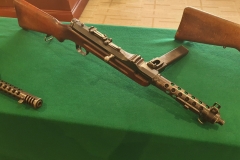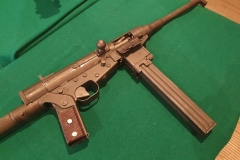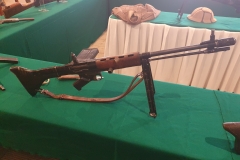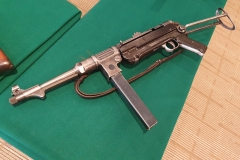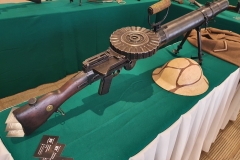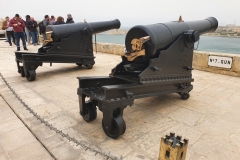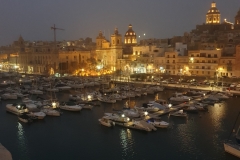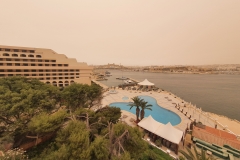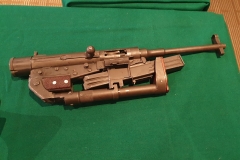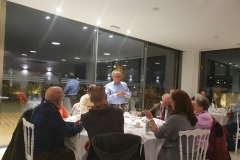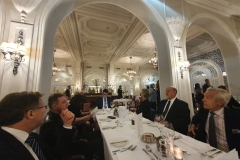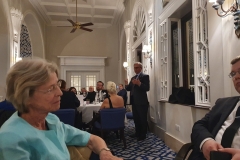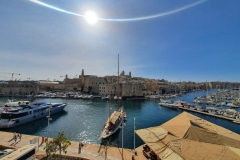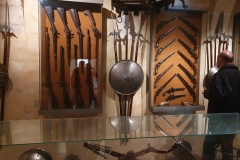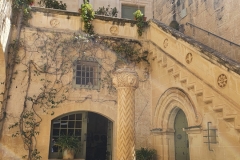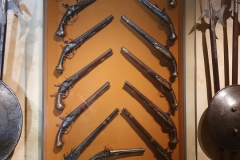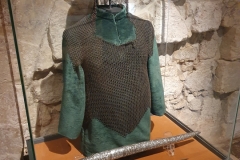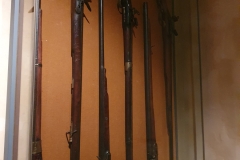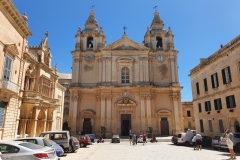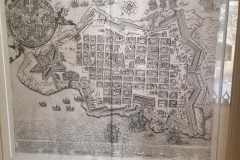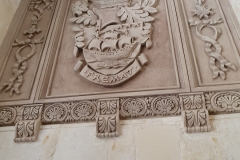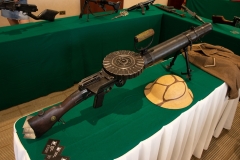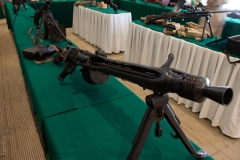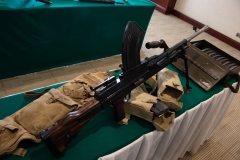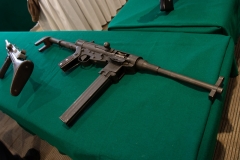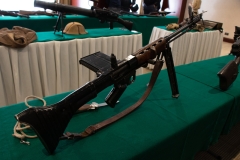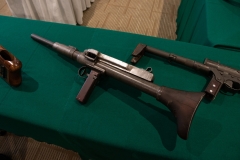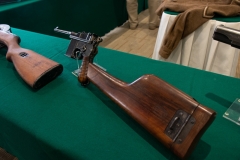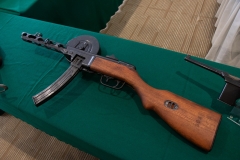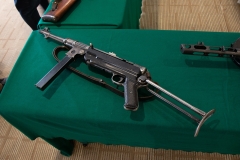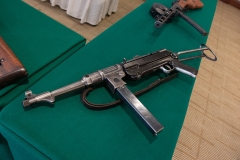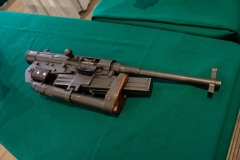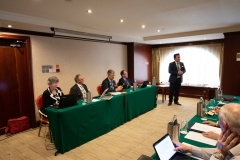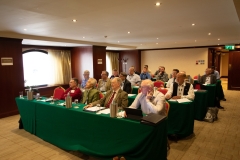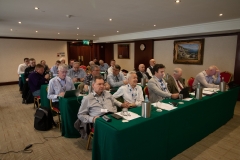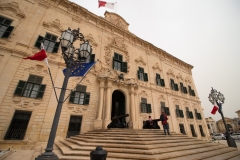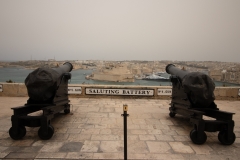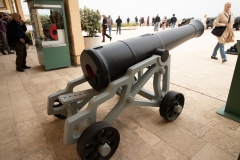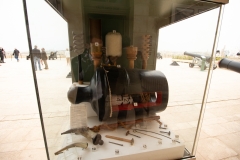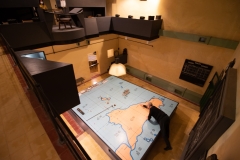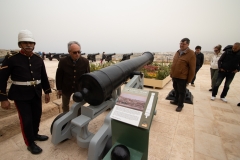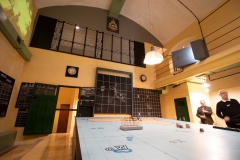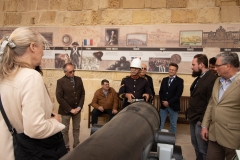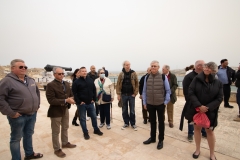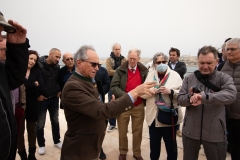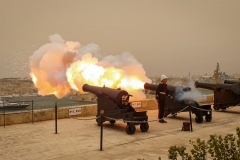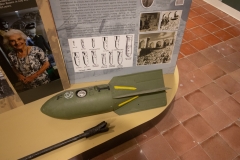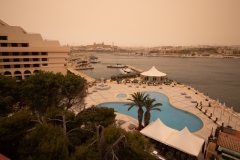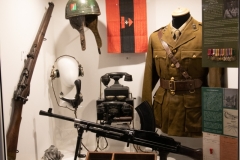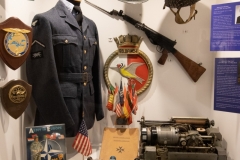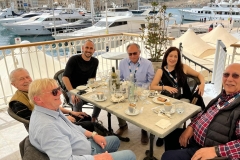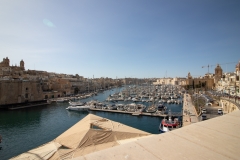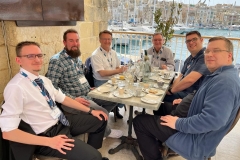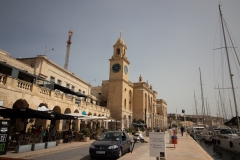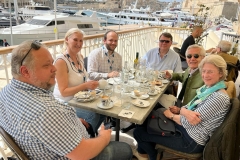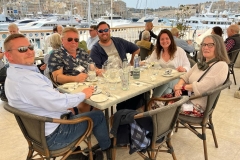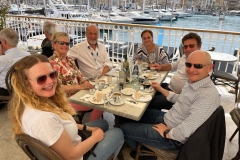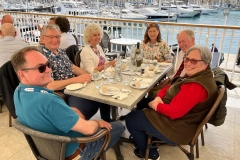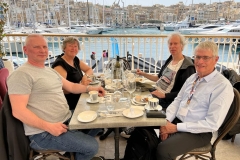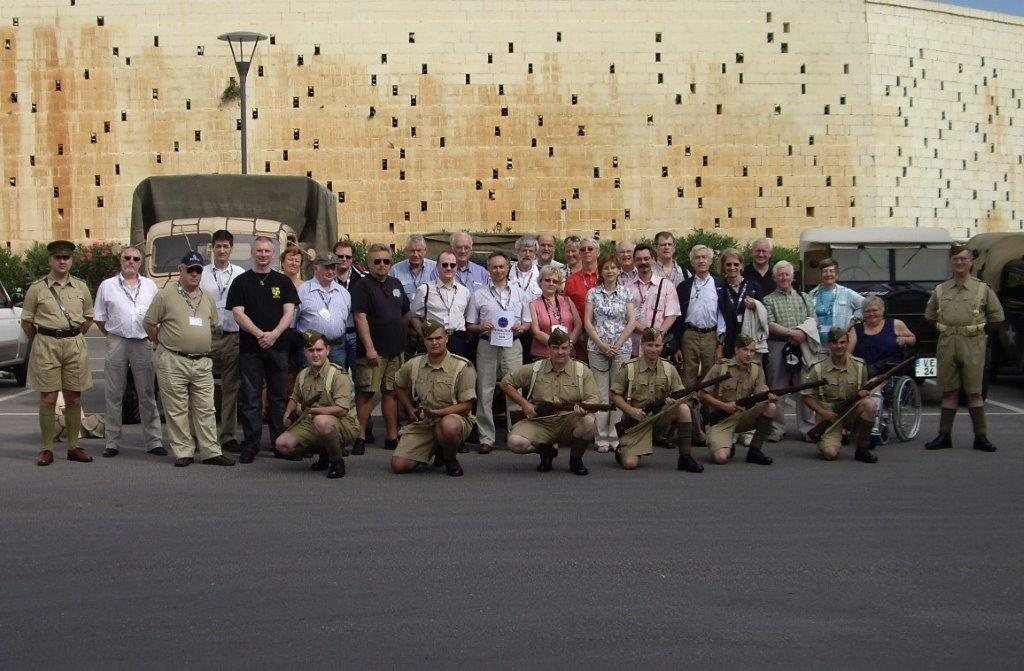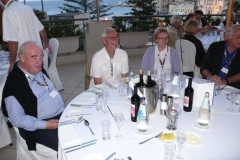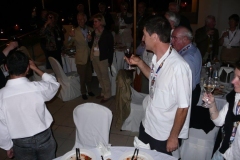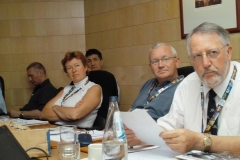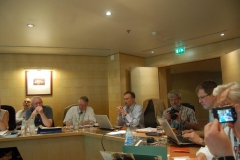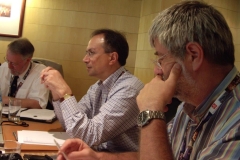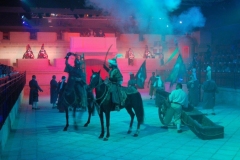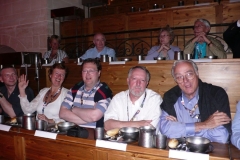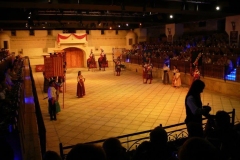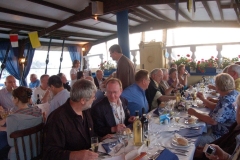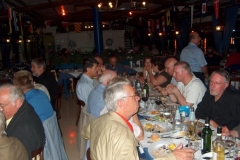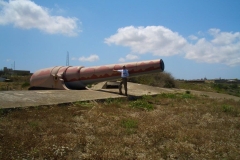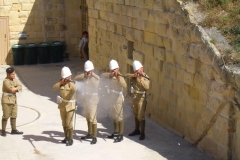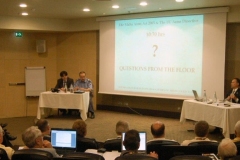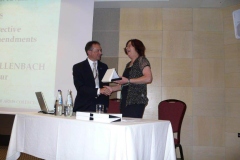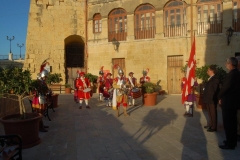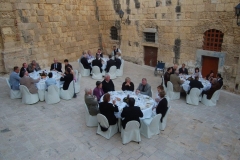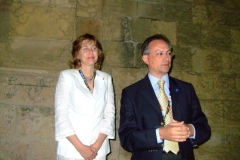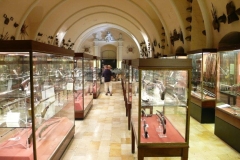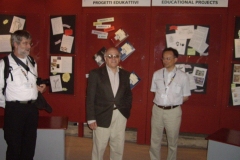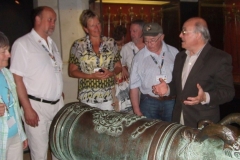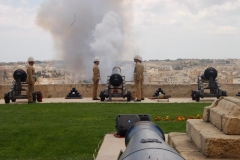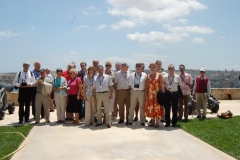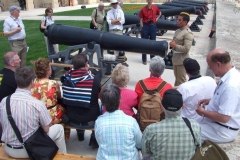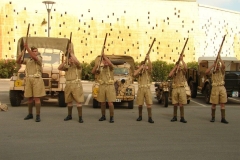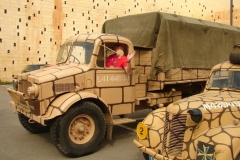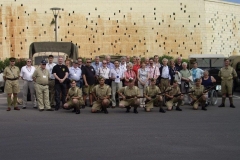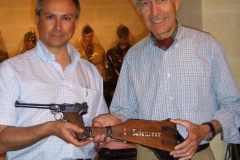Photographs from the 2022 Conference may now be viewed:
FESAC Annual Conference 2008 – Malta
On 6th June, a significant date for Europe, FESAC, the Foundation for European Societies of Arms Collectors, hosted a seminar as part of their annual conference which took place at the Hotel Le Meridien in St. Julians, Malta.
Guest speakers were Mrs Gisela Kallenbach, Member of the European Parliament for the German Green Party, who discussed the European Arms Directive, Joseph St. John, Director at the Maltese Ministry of Justice & Home Affairs and Peter Paul Zammit, Superintendent of the Malta Police, who both described the introduction and administration of the Malta Arms Act 2005, Mr. Josef Formosa Gauci, CEO of the Malta Tourism Authority, who outlined Malta’s cultural attractions which were now enhanced by historical re-enactment and finally the Hon. Mr. Clyde Puli, Parliamentary Secretary for Youth & Sports, who stressed the contribution shooting sports can make thanks to the new arms law.
FESAC’s OBJECTIVES
Chairman Mr. Stephen A. Petroni in his opening remarks stressed that the aim of regulating the possession and use of firearms should always be to protect the bona fide enthusiast and the general public from those who abuse the law.
It is FESAC’s duty to oppose attempts by uninformed legislators to introduce repressive laws which, as experience has shown, has little or no effect on organised crime which has its own resources. To this end the Foundation encourages its member organisation to work closely with the authorities, especially the Police.
He reiterated FESAC’s belief that rights do not come without responsibilities. Member organisations must act as a filter when proposing aspirant collectors for a licence.
At EU level, FESAC was successful in attaining due recognition of the arms collector’s role in society as a dedicated person who is in effect a curator of our common heritage.
EUROPEAN ARMS DIRECTIVE
Mrs. Kallenbach, the Rapporteur responsible for overseeing the Amendments to the EU Arms Directive, praised the help and advice she had received from FESAC. She described the Foundation as one of the most effective and sensible lobbying organisations. Initially concerned by the need to control and restrict public access to arms, she had come to realise the invaluable work done by arms collectors across Europe. Collectors are in effect the curators of an important part of our common European heritage, preserving and passing on to future generations our historical artefacts, together with the results of our research.
Following the rejection of the initial draft Amendments, consultations with FESAC and other interested parties had helped her arrive at a compromise which received overwhelming support from the majority of members of the political groups in Parliament. The Amendments will now have to be transposed into national legislation.
Mrs Kallenbach stressed the need for general recognition of the European Firearms Pass, as the only document required by collectors and shooters to pass freely between the countries of the EU, when carrying firearms for sport or cultural activities and when buying and selling.
MALTA ARMS ACT 2005
Mr Joseph St. John and Superintendent Zammit described how the Act had come about in response to the UN Protocol, the EU Arms Directive, but also to meet the needs of a changing social scene. Meaningful discussions with the various shooter and collector organisations had produced a workable law which met the needs of enthusiasts while offering a high degree of security for all citizens. As a result, sports shooting is on the increase.
One key feature of the legislation reflects the authorities’ confidence in genuine enthusiasts, who sit alongside their official counterparts on the Weapons Board, advising the Home Affairs and Justice Minister on firearm related matters.
CULTURAL AND SPORTS TOURISM
Mr. Gauci spoke of Malta’s rich cultural heritage in the context of the general world trend of a shift towards cultural tourism. The new Arms Act contributed to the enhancement of the country’s historical attractions by allowing the use of firearms in historical re-enactment. These re-enactments are an integral part of the ‘living history’ cultural experience. The Ministry of Tourism and the Malta Tourist Authority would continue to support initiatives by organisations which promote the Islands’ historical heritage through exhibitions and re-enactment.
The Hon. Clyde Puli stressed the Administration’s determination to build on the success of Maltese Clay Pigeon shooters by ensuring that as many shooting disciplines as possible are practised by local shooters, now that the Arms Act makes this possible. He thanked the Association of Maltese Arms Collector and Shooters (AMACS) for their perseverance over the years to push for a new law.
Malta was in a position to establish itself as a Mediterranean centre for sports shooting. However this would only be possible through the setting up of a National Shooting Sports Complex once all local organisations work together and with the Maltese Government to achieve this aim.
